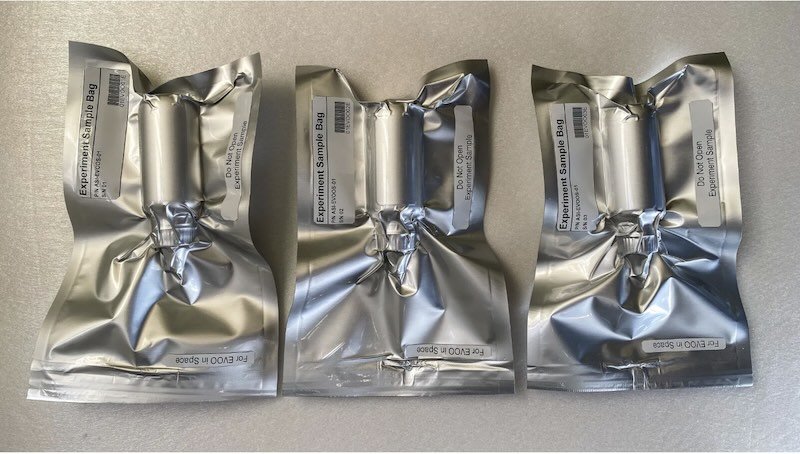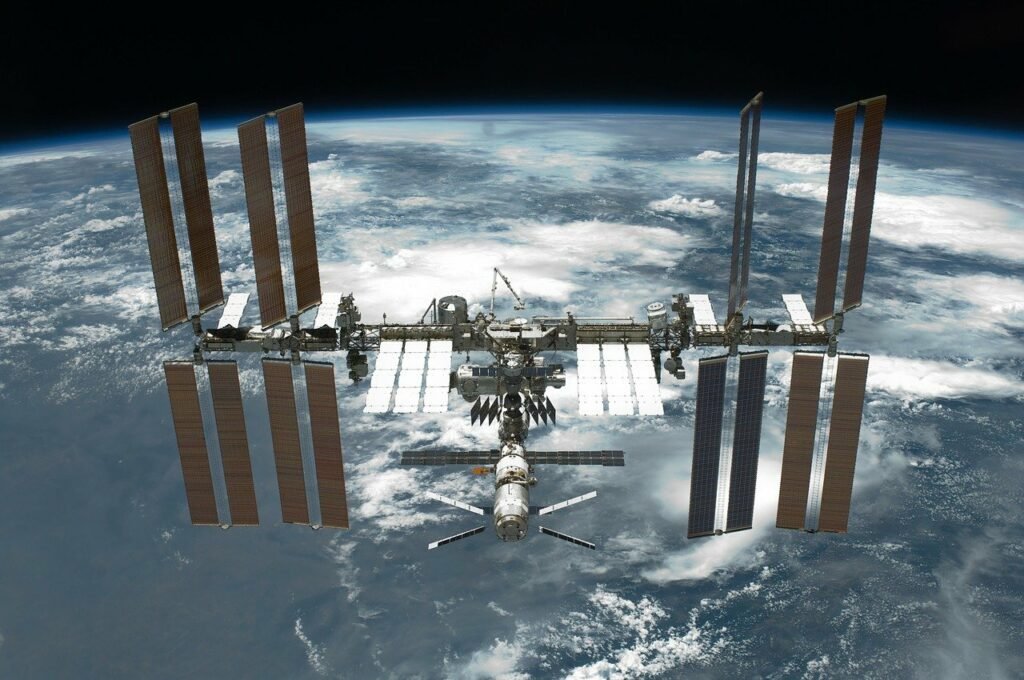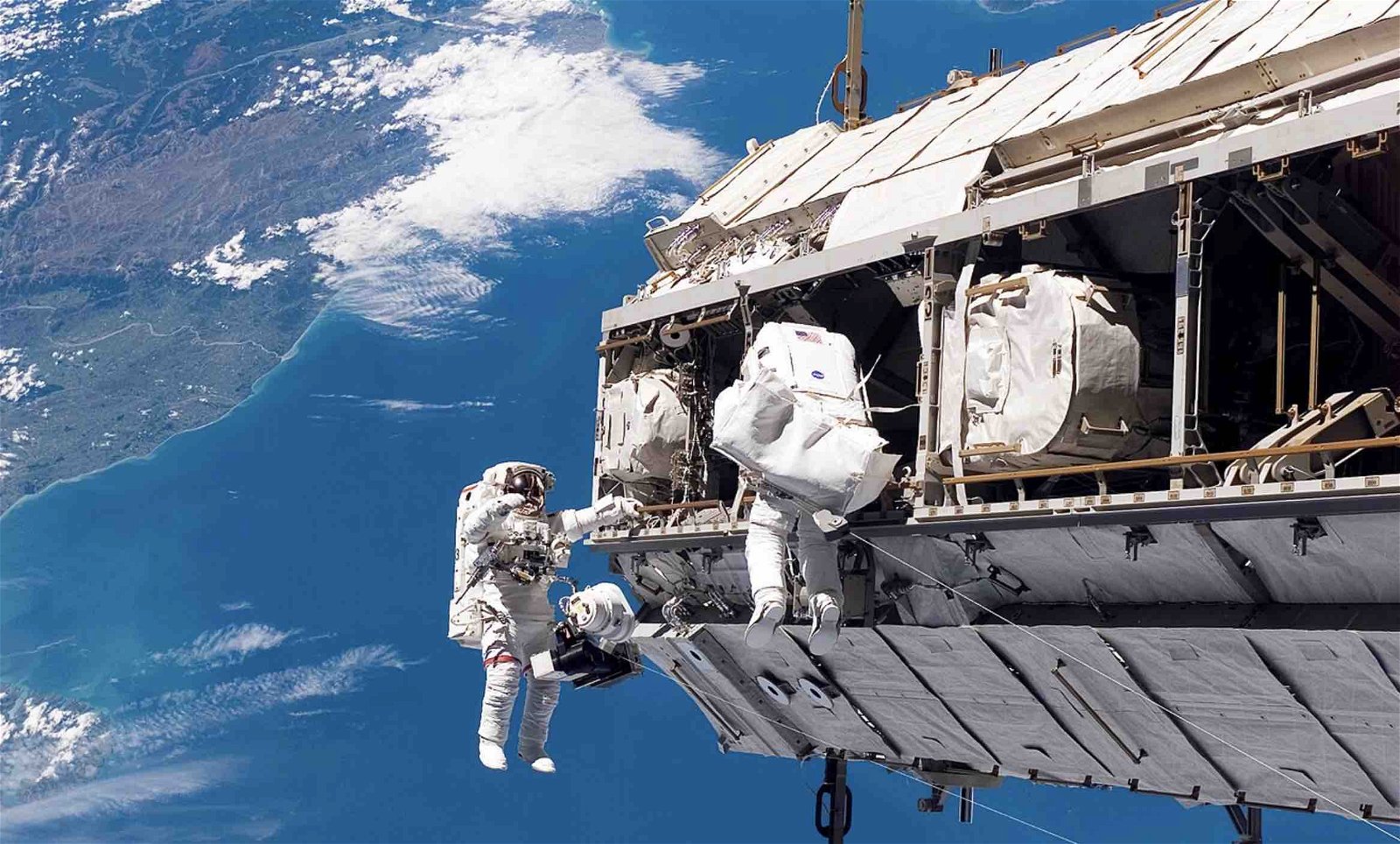Astronauts face significant perils while in space. Multiple studies indicate that humans who spend long enough in orbit may experience a range of health maladies that include weight loss, immune system weakening, loss in bone density, vision loss, and even mysterious headaches. However, new research is revealing how an ancient food product used for millennia may help alleviate some of the risks that astronauts face, and it tastes good too.
In a joint project between the European Space Agency, the Italian Space Agency, and the Council for Agricultural Research and Analysis of Agricultural Economics, a team of researchers and astronauts embarked on a mission to study the effects of the space environment on extra virgin olive oil (EVOO) in the spring of 2022.
Olive Oil in Space
The project, aptly named “EVOO in Space,” aims to investigate how the unique conditions in space, such as microgravity and cosmic radiation, impact the chemical, physical, nutritional, and sensory properties of this ancient culinary staple.
“Three samples of high-quality Italian extra-virgin olive oil were launched, stowed aboard the ISS, and downloaded separately at 6-month increments,” Dr. Marta Del Bianco, a plant molecular biologist and researcher at the Italian Space Agency (ISA), told The Debrief. “The project will shed new light on the olive oil composition and shelf-life in space and gather new information regarding the hardware currently in use onboard the ISS.”
Italian ESA astronaut Samantha Cristoforetti brought four carefully selected, high-quality Italian EVOOs to the International Space Station (ISS) as part of her Minerva mission. These oils, chosen by Coldiretti and Unaprol (the Italian association of olive oil producers), represent different regions of Italy and boast a high content of natural antioxidants, which are crucial for maintaining the health of astronauts during their time in space.


With all the olive oil samples now safely back on Earth, Del Blanco and the ISA are almost done with their analysis.
“Physicochemical, sensorial and nutritional analyses were carried out on the extra virgin olive oil before and after flight (we are still analyzing the last sample), plus control samples kept on the ground, to determine the effects of the exposure to the space environment on the olive oil shelf-life,” Del Blanco explained.
Overall, the mission had several objectives.
Firstly, researchers want to know how microgravity and cosmic radiation affect the chemical-physical, nutritional, and microbiological characteristics of EVOO. This investigation will provide valuable insights into the stability and shelf life of food products in space, which is essential for planning long-duration missions.
Secondly, the project explores how the space environment influences the sensory properties and flavor profile of EVOO. As astronauts’ sense of taste and smell can be altered in space, understanding how these changes affect their perception of food is crucial for ensuring their well-being and maintaining a balanced diet.
Furthermore, the EVOO in Space project aims to investigate the potential benefits of EVOO consumption for astronauts’ health during extended space missions. The high content of antioxidants in EVOO, such as polyphenols and vitamin E, may help protect astronauts from the harmful effects of cosmic radiation and oxidative stress.
The Results of Consuming Olive Oil in Space
Over the last two years, astronauts consumed the EVOOs with their meals. Another sample was provided for running scientific tests. Another series of samples was simply stored aboard the ISS, and have since been brought back to Earth at intervals of six, twelve, and eighteen months for analysis and comparison with control samples kept on the ground.


“The results could open the possibility of using EVOO as a mitigation measure for the effects of long duration missions on human health,” Del Blanco said. “It has been shown that, thanks to its potent antioxidant activity, consumption of high quality extra virgin olive oil can help reduce inflammation and is associated with lower cancer risk.”
“Evidence of olive oil being used by the Ancient Greeks stretches back approximately 6000 years,” Theo Kyriakopoulos, co-founder of Olympic Olive Oil, told The Debrief in an interview. “Among other uses, the health benefits of olive oil have stood the test of time and are well documented by nutritionists and the wider medical community.”
Kyriakopoulos’ boutique olive oil is produced by a small and select group of growers in the Ilia prefecture in Greece, harvested and pressed annually, in the same style as the ancients. Much like Del Blanco, he’s read the studies regarding olive oil’s health benefits.
“Extra virgin olive oil, which is cold pressed by mechanical means shortly after cultivation of the olives, is full of antioxidants and heart-healthy fats,” he explained. Noting a handful of studies that show how this ancient food lowers risks for heart disease, cancer, and inflammation. Moreover, it’s pure. No additives or chemicals can be used in its production.
“Given the immense health benefits, it is clear that olive oil would make a logical addition to any long haul space mission,” Kyriakopoulos added. “Not to mention the delicious results.”
Culinary aspects aside, the bodies of astronauts get put through a lot, and both NASA and the ESA provide significant supplements like doses of vitamins and protein to the astronauts living aboard the space station. Essential, but as many nutritionists know, inefficient.
“While things like vitamins and antioxidants can be taken via supplements, it has been shown that, quite often, this approach is not as efficient as the whole food,” Del Blanco said.
In simple terms, real food is always better.
How Olive Oil Fares in Space
Preliminary results from the first returned samples have shown minor alterations to the chemical makeup of the oil, but these are unlikely to have significantly impacted the health benefits and flavor profile of the EVOO. Scientists anticipate that the absence of gravity and exposure to cosmic radiation will affect the composition of EVOO over time, as radiation has an oxidant effect that could interact with the antioxidants present in the oil. In simple terms, while the 6-month sample showed little change, the 18-month sample that returned to Earth in December will indicate the extent and damage caused by exposure.
“EVOO is delicious and helps with flavour enhancement, thus helping to maintain the mental well-being and motivation of the crew,” Del Blanco said. “For long space travel, EVOO would need to sustain the radiation exposure and maintain those characteristics that are beneficial for astronauts’ health.”
The findings from the EVOO in Space project could have far-reaching implications for the future of space nutrition. By understanding how food behaves in space and identifying the key factors that influence its quality and nutritional value, researchers can develop functional nutrition strategies for long-duration space missions, such as those to the Moon or Mars.
The real question is how the astronauts can use this oil to pan-sear a beautiful filet on that 6-month trip to Mars, and mix up a nice red wine demi-glace. Del Blanco had an answer for that.
“The problem of cooking a steak, more than the oil, is the cooking in itself: no convection in microgravity,” she said jokingly. “It’s too dangerous to have open flames and hot metal, and you can’t really open a window to quickly change the air.”
The preliminary results of the study are very promising, according to Del Blanco, and they “hope to publish the study very soon.”
MJ Banias covers security and technology with The Debrief (and occasionally, space food). You can email him at mj@thedebrief.org or follow him on Twitter @mjbanias.

